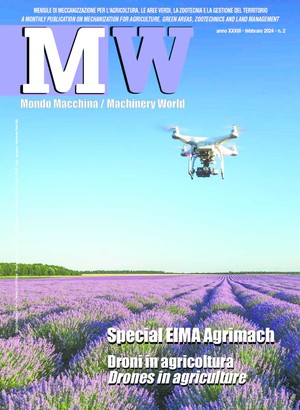
SCIP database, a complex dossier
The set up of the new database for the inventory of articles containing dangerous substances has begun. In January 2021, it will become mandatory. However, the issues related to the information required and the transmission format are still pending
With the implementation of Directive 2018/851/EU, amending the Waste Framework Directive (2008/98/EC), the SCIP (Substances of Concern In articles, as such, or in complex objects -Products-) database will be established. This tool makes it possible to gather information on the substances of concern used in the articles with which products are made, and therefore also agricultural machinery. The aim is to promote the replacement of substances of concern by less environmentally and health impacting elements, helping waste managers to ensure that these substances are not found in recycled materials.
As of January 5, 2021, companies that place on the EU market articles containing substances of very high concern (SVHC - Substances of Very High Concern) that are included in the so-called "Candidate List" and that are present in a percentage higher than 0.1% by weight of the article, must notify ECHA, the European Chemicals Agency that manages the SCIP database. They must also provide indications for the safe use of these articles throughout their entire life cycle, including the disposal and waste treatment phases. Specifically, manufacturers, assemblers, importers, distributors, and all those placing items on the EU market will have to comply with this obligation. The database information will be made available to waste operators, national authorities, and consumers.
For example, if there is the case of an engine containing a simple gasket consisting of an SVHC, included in the "Candidate List" in a percentage as mentioned above, the tractor manufacturer using this engine must register the tractor indicating the gasket whose life cycle must be monitored. The implementation steps are February 2020, creation of a prototype version of the portal for transmitting information to the database; July 5, 2020, deadline for the national transposition of Directive 2018/851/EU; end of October 2020, the release of version 1.0 of the SCIP with the possibility of transmitting information in the database; January 5, 2021, notification requirement for industry begins.
FederUnacoma shares the European environmental protection and health and safety legislation goals and therefore, fully endorses the principles underlying the setting up of the SCIP bank but raises some reservations about the applicability of the current implementation of the database. These reservations have been transmitted to the Ministry of the Environment, the Ministry of Economic Development, and the Ministry of Health, as well as the European Commission, through a position paper signed by the European associations of reference. A meeting with the Commission is hoped for in order to give the grounds for the paper, as already occurred with the Ministries mentioned above. Specifically, the information required by ECHA is contested because it goes beyond the provisions of Article 33(1) of the REACH Regulation (1907/2006/EC) on which Directive 2018/851/EU is based. For instance, the September 2019 version required the identification of the items, if a product was manufactured in the EU, the link to upstream suppliers, the Candidate List version, concentration ranges, and material categories. This information is difficult to find and would require enormous efforts from producers since, in most cases, they have to deal with long global supply chains.
FederUnacoma, since it represents producers who place on the market a wide variety of complex products that can include thousands of types (in many cases according to customer requirements), also focuses on the possibility of transmitting this information in an aggregate form avoiding, as far as possible, duplicating the data.
Therefore, the dialogue with the institutions is started, even if the current health emergency is delaying the several EU regulatory dossiers, and it is not excluded that the implementation phase of the new directive may be postponed from the deadlines already defined.








